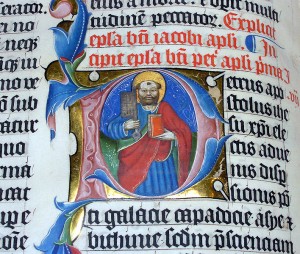 Part Two, The Church’s Memory & Identity Under Siege:
Part Two, The Church’s Memory & Identity Under Siege:
In my previous article, I talked about the Catholic Church and the Latin language. I left off with a note on various theologians and laymen substituting their makeshift theology for the Tradition of the Church. I would like to expand upon that point.
Still smarting from the sharp reminder of the proper role of a Catholic theologian that was issued to them by Pope Pius XII in his Encyclical Humani Generis (paragraphs 9-13), these various theologians and laymen now took heart in the fact that they were in the limelight. They had the attention (and concomitant power) of the media on their side and their views were given a lot of prominence, which subsequently influenced how people heard and understood the Church’s actions both during and after the Council. In other words, they thought themselves to be the interpreters of the Council and formed what Bishop Fabian Bruskewitz called a “para-Council.”[i]
A particular doctrine that many of these theologians and laymen wanted the Church to adopt was that of free speech without the fear of censorship. Let us look together at this in some detail.
Many older Catholics would remember the Index of Forbidden Books (“Index”) and its system of censorship. Any book suspected of or known to contain matter contrary to faith and morals was put on a list of books that Catholics were forbidden (under pain of ecclesiastical law) to read. Statements were made before and during the Council either to get rid of the Index or mitigate its censures. The reasoning behind these statements was that the Index was from an antiquated epoch of ecclesiastical history. In other words, they believed that modern man does not understand this system so it should be consigned to the dustbin of history.
Immediately after the Council and as a part of its reforms, Pope Paul VI began revising the Church’s laws of censorship. He removed the legal force of the Index and relaxed the canonical censures of the 1917 Code of Canon Law. When the Pope did these things, there was an important distinction made between ecclesiastical law and the moral/natural law. Namely, that the faithful were still bound by the natural law not to read matter contrary to faith and morals even though they would not incur canonical censures if they did read any such material.
Unfortunately, against the backdrop of the vision of various theologians and laymen being propagated onto the masses, many Catholics were misinformed as to what Paul VI intended with the above. What they heard was, “the faithful can now read and disseminate what they wish.” Under the guise of free speech, “academic freedom” or even that of being “open to the Holy Spirit,” Catholics were led to believe that they could now read and disseminate whatever they wanted. This resulted in a wholesale disregard for faith and good morals. The numerous media propagating the vision of the “para-Council” spoken of earlier made it very difficult to discern the “one true voice” of the authentic Magisterium. The competition formed by these two took the faithful by a tour de force that had a disastrous effect upon Catholic life and practice leaving many confused.
As it relates to book publishing and reading, the above confusion did not favor people paying close attention to Paul VI’s distinction between natural and ecclesiastical law. Once the floodgates were open, the subsequent tsunami known as the “spirit of Vatican II” was unstoppable. Many were given the impression the Church had entered the modern world with its doctrine of free speech without censorship. There is, perhaps, no better example of this than in the explosion of books alleging private revelation.
[i] Bruskewitz, Fabian, A Shepherd Speaks. (San Francisco: Ignatius Press, 1997), 136-137. See also Joseph Cardinal Ratzinger, The Nature and Mission of Theology: Approaches to Understanding Its Role in the Light of Present Controversy. (San Francisco: Ignatius Press, 1995), 101-118.
(© 2011 Kevin Symonds)



